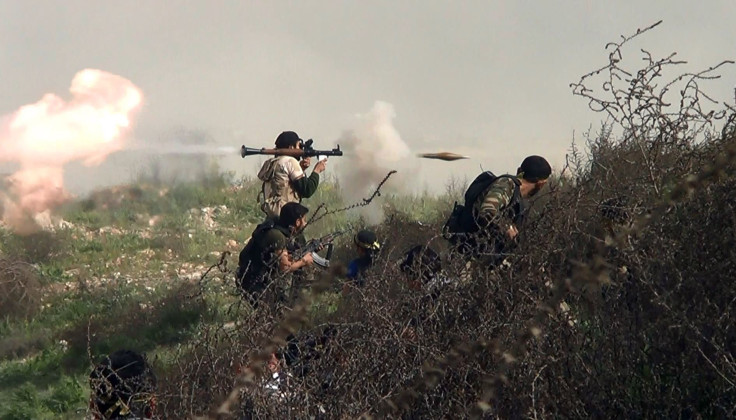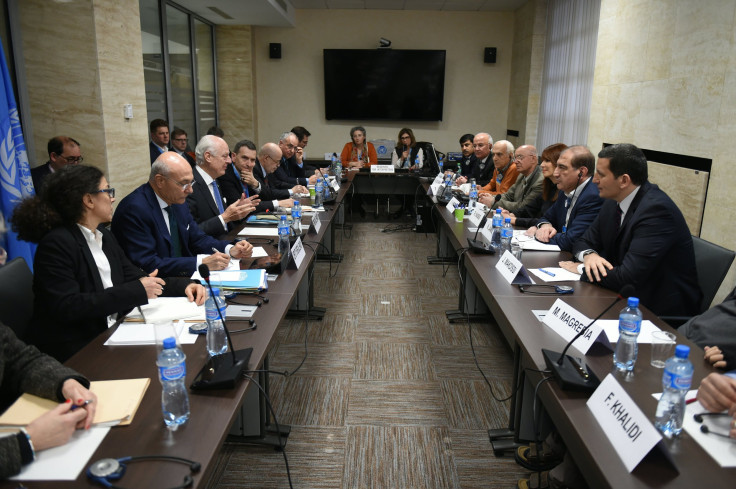US Prepares Plan B To Arm Moderate Rebels In Syria If Ceasefire Fails

The U.S. is preparing a Plan B to supply more powerful weapons to vetted moderate rebel factions in Syria who are fighting the Russia-backed regime, the Wall Street Journal reported Tuesday, citing U.S. and other officials. The report said CIA and its regional partners have drawn up plans supply the rebel units with weapons systems that would help them to direct attacks towards Syrian regime aircraft and artillery positions.
The Journal had reported in February that U.S. President Barack Obama’s senior military and intelligence advisers were pushing the White House to formulate a Plan B to tackle Russia in Syria. The preparations for the plan were reportedly discussed at a secret meeting of spy chiefs in the Middle East just before the Syrian ceasefire was implemented on Feb. 27 and in later exchanges between the intelligence services.
The Journal report said, citing officials familiar with the deliberations, that the CIA gave provisional assurances to coalition members, saying they would be allowed to expand their support to moderate rebels in the country if the ceasefire fails. The report added that other coalition members agreed to the outlines for Plan B but the White House still needed to approve the list of specific weapons systems under the plan before they can be sent to the war zone.
The CIA also reportedly clarified that the new systems would be given to the rebels only if the ceasefire and the existing peace plan, referred to as Plan A, failed and led to full-scale fighting.
“The agreement is to up the ante, if needed,” a senior U.S. official reportedly said, adding that Washington was currently focused on finding ways to make sure that political negotiations continue and the hostilities stop. A CIA spokesperson declined to comment on the matter.
U.S. officials also told the Journal that a private message sent to Russian officials stated that resumption of full-scale fighting would endanger more Russian pilots in the region. So far, Moscow has supported the Syrian President Bashar Assad with air power. The report added that the U.S. Secretary of State John Kerry and CIA director John Brennan have also warned Russian officials during private meetings over the possibility of violence escalating in Syria.
"If the ceasefire collapses, if the negotiations don’t go anywhere, and we’re back to full throttle civil war, all bets will be off,” a senior official from the Obama administration said, referring to the message sent to Moscow, according to the Journal, adding: “The outside patrons will double and triple down, throwing everything they can into Syria, including much more lethal weaponry.”

CIA’s main concern is the man-portable air-defense systems, which are also known as Manpads, a small number of which are already believed to have been procured by the rebels through illegal channels. The agency is trying to prevent more of these systems from reaching the rebels, due to worries that they may fall into the wrong hands in the war zone.
Coalition partners have so far proposed ideas like limiting the duration for which the systems' batteries run or installing geographical sensors on them so that they cannot be fired from outside predefined areas. However, Washington has not been very responsive to such ideas.
Officials also told the Journal that the CIA allowed some rebel groups to receive Soviet-era BM-21 “Grad” multiple rocket launcher systems in a limited number. Saudi Arabia and Turkey have pressured the U.S. to increase the weapons being given to the moderate rebels in Syria, a move that started in 2013 with limited supplies.
The ceasefire implemented in Syria called for a cessation of hostilities between rebel factions and government forces, while continuing to target the Islamic State group in the region. However, over the past few weeks, violations to the ceasefire have increased, leading to the Plan B getting prepared. Representatives for Assad and opposition forces are also set to meet this week in Geneva for negotiations brokered by the United Nations.
© Copyright IBTimes 2024. All rights reserved.






















